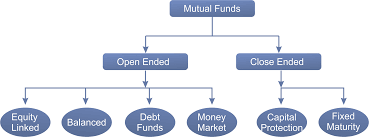Types of Mutual Fund

Types of Mutual Funds and Their Benefits
There are several different types of mutual funds available in the market. These include Close-ended funds, Open-ended funds, Multi-cap funds, and ELSS funds. Before you buy any type of fund, you should understand the basic terms and the types of investments. If you do not understand the basics, you can always go through this article for further information. Read on to discover more about these mutual funds and their benefits. Here are some of the most common types of mutual funds.
Close-ended funds
There are several main differences between open-ended and closed-ended mutual funds. For example, an open-end fund can sell as many shares as it wishes at a price that reflects its net asset value per share. These prices are determined by competitive markets. In a competitive market, buying demand and selling supply are based on investor perceptions, fears, and needs. In addition, the fund’s relative performance, size of unrealized appreciation, and managed distribution programs may also influence the price.
Open-ended funds
Investors who prefer an alternative investment option may consider open-ended mutual funds. These investments allow investors to invest in various assets with a systematic investment and withdrawal schedule. Such funds are managed by professional fund managers who have the expertise, resources, and experience to make sound investment decisions. Investors can also choose from a variety of assets, including stocks from various industries. This ensures that investors can diversify their investment portfolio, which can reduce the risk of making poor decisions.
Multi-cap funds
A multi-cap mutual fund aims to generate wealth, a combination of value, risk, and return. The investment style of the multi-cap fund’s manager may determine which stocks to purchase. However, before you purchase this fund, you should first make sure that it is consistent with your financial goals and investment style. Multi-cap funds generally carry higher fees than other types of mutual funds. In addition, you should pay extra attention to the fund’s expense ratio, which is the annual charge the fund charges for managing your money.
ELSS funds
Before investing in ELSS mutual fund, one should have a valid investment account with a fund house. This process is free, but one must undergo KYC verification. During KYC, one needs to upload his PAN card, address proof, and valid government ID. The next step in investing in an ELSS mutual fund is selecting a tax-saving mutual fund and buying units. The process can be seamless if an investor is using an ECS.
Sectoral funds
There are several advantages of sectoral mutual funds. These funds are highly cyclical, which means that you can make excellent returns only if you know how to pick the right sector. For instance, in the Covid disease, Pharma Sectoral Funds saw exceptional returns. However, you must choose the sector carefully. If you choose the wrong sector, you may find it difficult to earn a return that is higher than a diversified fund.
Thematic funds
Thematic mutual funds are concentrated equity mutual funds. They carry a high concentration risk. Although thematic funds do well in a positive economy, when the economy is negatively affected, the fund’s losses can be magnified. Nevertheless, if you’re willing to accept a higher concentration risk, this type of investment can be a good choice. Listed below are some of the factors that you should consider before investing in thematic funds.





